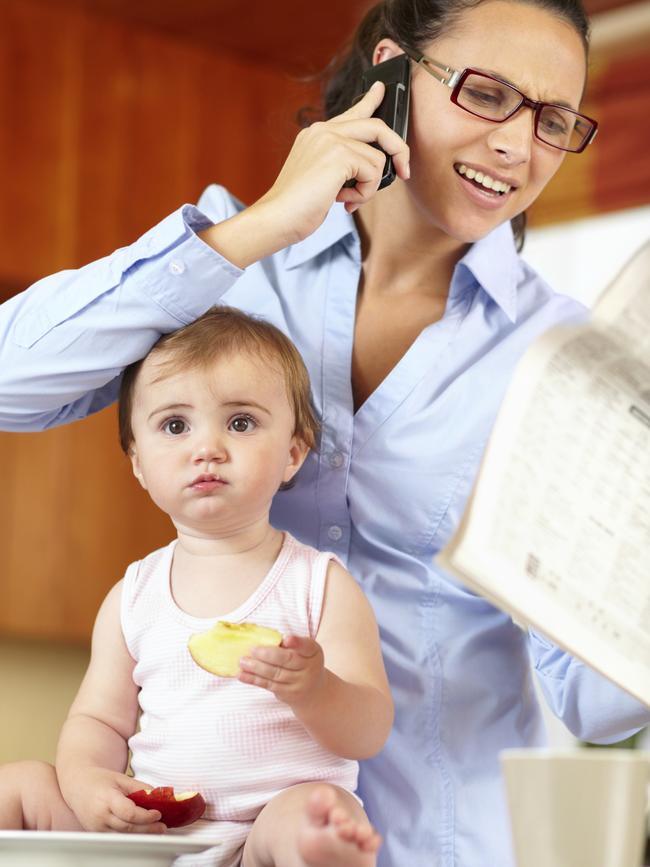Barefoot Investor: Property ‘success’ stories reveal more luck than sense
Happy tales of cashed-up bogans who gambled on property investments and won have become clickbait for news websites, but what we don’t see are the tales of heartache of the many who lose out, writes the Barefoot Investor.
Barefoot Investor
Don't miss out on the headlines from Barefoot Investor. Followed categories will be added to My News.
You know what really grinds my gears?
Cashed-up bogans.
For years, their success stories have been clickbait for news websites.
They all run along the same lines:
“Craig and Cheryl were just like you — wasting their lives away reading empty articles on the internet instead of applying themselves at work.
RBA REVEALS 50-50 CHANCE OF CASH RATE CUT
BANKING ROYAL COMMISSION FINAL REPORT
Yet unlike you, they made the decision to buy five investment properties five years ago.
Today, the young couple is worth $3 million and they’ve retired (to run a property investment advisory business).”
The savvy couple’s advice to people wanting to follow in their footsteps? “If we did it, anyone can. All you need is passion,” says Cheryl. “Hustle!” adds Craig.
(Insert photo of the smug couple with matching tans, tattoos, and teeth.)
“Come on, they were just lucky!” I yell at my computer screen.
They didn’t work, or create anything … all they did was take on a lot of debt and ride their luck!
Well, let me show you what happens when your luck runs out, this time with a real couple: Michelle and Ian Tate.
In 2013, the Tates decided to expand their property portfolio … to five properties.
Despite the fact they had three young kids.
Despite the fact that they were relying on only one income, which was heavily dependent on a cyclic industry (mining, as a fly-in fly-out worker).
It didn’t take long for things to go wrong.
So, who is to blame?
Well, the couple blames the bank for lending them the dough.
And so do their lawyers, Maurice Blackburn, who have made them the lead plaintiffs in their blockbuster Westpac class action with the charge of irresponsible lending.
Hang on a moment.
If we’re talking about acting irresponsibly, how about not taking a few moments to question how their single wage could possibly feed both a family of five, and five properties.
It’s not that hard. All they needed to do was click away from Facebook and head over to a mortgage calculator:
“Strewth! If interest rates go up by 0.1 per cent, the computer says we’re cactus!”
The banks closed their eyes and went on a borrowing binge to hit their profit targets … and many borrowers did pretty much the same thing.
(And now, in the circle of corporate life, the greedy lawyers are licking their chops at the chance of a big payday.)
Look, I’m a fan of kicking the banks, yet I’m an even bigger fan of personal responsibility.
And the media? Well, it’s a fan of whatever gets the most clicks, which this week was, “Family’s $1.8m Westpac mortgage hell”.
Tread Your Own Path!

Q&As
WORK BREEDS SUCCESS
FIONA ASKS: I am a 32-year-old single mother trying to save for my own house.
I’m working full-time and completing my degree online, so I moved in with my grandparents to get some help. My daughter and I currently share a bedroom, all in the name of saving.
But I feel hopeless and useless. I have recently been looking at Metricon HomeSolution as a way of getting into the housing industry. Do you recommend this?
BAREFOOT REPLIES: I agree, your Instagram feed would totally suck: all you do is work and study, and you live with your grandparents and share a room with your kid! #Loser.
However, with as little as $2000 down, you can have lots of Instagram-worthy pics of you and your daughter in your very own, new Metricon home. #Winner.
Actually, last year Metricon HomeSolution was fined by the regulator for misleading advertising.
It turns out buyers actually need to come up with a 5 per cent deposit, which is financed through an unsecured personal loan, often arranged through one of Metricon’s associated finance brokers.
#Rip-off.
My job allows me to look through people’s financial filters, and here’s what I’ve seen: Some of the biggest financial losers are young couples with the nicest Instagram accounts; they live in Metricon house-and-land-package homes, with a leased Audi, an interest-free Harvey Norman TV, and Afterpayed accessories.
I even have a name for them: Postcode Povvos.
In my eyes, you’re a winner. While other people desperately try to show strangers on social media they’re successful — you are living it.
So do me a favour: whip out your phone and record a message to give to your daughter when she’s 18.
Tell her about how you’re feeling right now: the struggle and sacrifice of working and studying and being a mum.
Tell her why you’re doing it, and what your hopes and dreams are. Then show her your little shared room.
I guarantee you two things:
First, when it comes time for her to look at that video, you’ll have your own little home.
Second, she’ll realise just how brave and amazing her mother really is. And that’s the ultimate ‘like’, right?

ON A CRYPTO HIGH
SIMON ASKS: I am halfway through your book but have not seen any mention of cryptocurrencies yet.
I like shares, but cryptos are more volatile and have made me way more profits.
I believe cryptos are the next natural money progression — passbooks, ATM cards, credit cards, payWave, PayPal, Google Pay, Samsung Pay, watch/mobile pay and cryptos. With world currencies becoming worthless (e.g. Venezuela) surely something will replace cash. Your thoughts? I reckon cryptos will be in the next edition!
BAREFOOT REPLIES: I can guarantee you that crypto won’t be in the next edition.
As you know, a lot can change in 12 months … especially when it comes to crypto. Just ask the author of the book, “How to Become a Bitcoin Millionaire in 2018”.
The thing about my book is that the broad principles don’t change … and I think that’s a good thing. Thanks for keeping my Barefoot kids in shoes, by giving me (yet another) opportunity to plug my book.

CRYPTO LOW
PHIL ASKS: I have always put my savings in a long-term deposit bank account.
However, starting about 12 months ago, I decided to use half of this money to invest in cryptocurrencies, and this resulted in a 90 per cent loss.
I then used the remaining of my savings in some blue-chip ASX shares that have delivered a 25 per cent loss.
Of my original $40,000 I currently have just $10,000! Should I accept this loss, cash out, and put my $10,000 back in the bank — or hold?
BAREFOOT REPLIES: Holy Moly. This year really has been your ‘annus horribilis’, to quote the Queen.
Now given your experience, you probably think everything is a scam. However, please don’t confuse punting on crypto and investing in shares.
The small, but fundamental difference is that you are becoming a part-owner in a (hopefully) profitable business, that (hopefully) pays you a growing dividend.
So, what would I do?
Well, after suffering a 90 per cent loss on your crypto, I’d mentally write them off as worthless, but continue holding them just in case crypto madness returns.
However I’d hold and add to the blue chips over time. It’s the slow and steady accumulation of dividends that will make you wealthy. The rest is just noise.
If you have a burning money question, go to barefootinvestor.com and #askbarefoot
The Barefoot Investor for Families: The Only Kids’ Money Guide You’ll Ever Need (HarperCollins)RRP $29.99
The Barefoot Investor holds an Australian Financial Services Licence (302081). This is general advice only. It should not replace individual, independent, personal financial advice.


